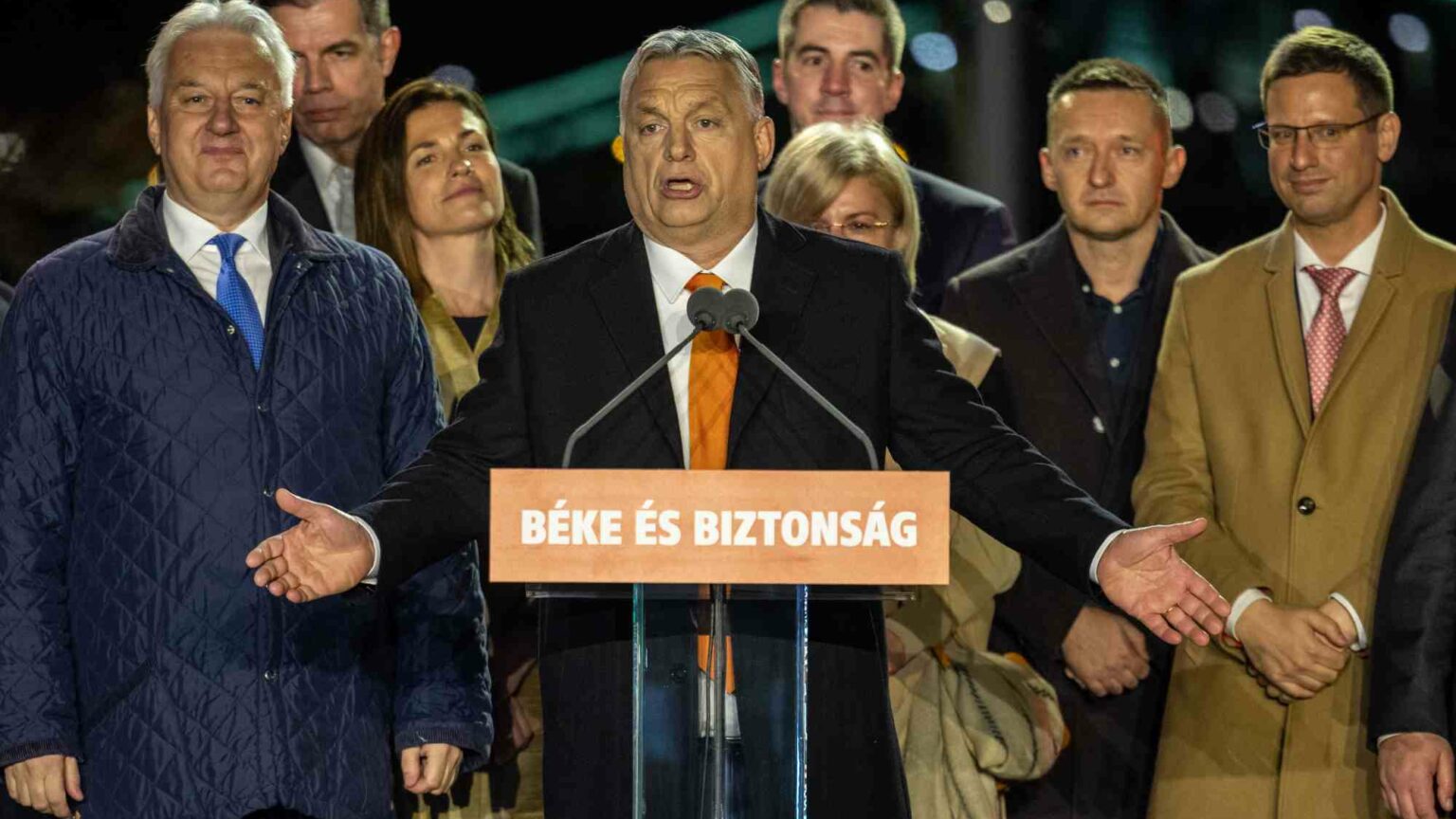Why American conservatives are looking to Hungary
Viktor Orbán has a lot of admirers on the embattled American right.

Want to read spiked ad-free? Become a spiked supporter.
The Conservative Political Action Conference (CPAC) plays an important role in American politics. It launched Ronald Reagan on his path to the presidency, after he delivered a keynote lecture at its inaugural conference in 1974. And Donald Trump kick-started his political career there, too, when he spoke at its annual main event in 2011.
In recent years, CPAC has branched out beyond America, staging CPAC-branded events in Japan, Brazil, Australia, South Korea and, just last week, Hungary.
But CPAC Hungary was different from other foreign CPAC events. While the press barely noticed the conferences in Japan or Australia, Hungary’s caused a media frenzy. All the world’s major news publications wanted access, and many were turned away.
So what’s going on? Why did CPAC Hungary cause such a stir?
It certainly wasn’t the attendees. No ‘big ticket’ Republican made it. Donald Trump was invited, but declined, preferring instead to send a video message. It meant that the main US speaker was Candace Owens, a 33-year-old influencer best known for provoking feminists and Black Lives Matter activists.
No, what drew Western media outlets to CPAC Hungary last week was the belief that it signified something important – the belief that Hungary, under the government of Viktor Orbán, is providing a model for American conservatives to potentially follow. And there may be some truth in this.
‘I think it’s more about [the state of American conservatives] than about us’, admits Balázs Orbán, a political scientist, adviser to Viktor Orbán (no relation), and one of the key speakers at CPAC Hungary. Balázs says that the disarray of American conservatives has driven them to look to Hungary for a way forward. Orbán’s Hungary, Balázs explains, shows them that it pays off to remain true to a robust, conservative, Christianity-based programme. ‘I believe our example gives American conservatives strength for their battles to come’, he says.
US political scientist Gladden Pappin, from the University of Dallas, also spoke at CPAC Hungary. He echoes Balázs’ sentiments, telling me that Hungary is ‘teaching American conservatives not to be afraid’, and that Orbán shows that ‘promoting a good, functional society is still possible, and can even bring political success’.
‘To be sure, Hungary has unique features and the American right has long travelled a different path, typically resistant to governmental oversight in the economy, for example’, Pappin continues. ‘But as major corporations have become hostile to traditional ways of life, more conservatives are looking to Hungary’s robust model for family support, national integrity and support for industry.’
Pappin touches on something important here. Historically, Western conservatives’ main weakness has been that they’re seen as socially insensitive, advocating a small state at the expense of those a larger, more interventionist state might be able to help. This has ceded the ground of socially supportive state intervention to the left.
But Hungary has changed things. Orbán has broken with conservatism’s aversion to state intervention, or as Pappin puts it, ‘governmental oversight in the economy’. Admittedly, the Hungarian government has lowered redistribution rates over the past 12 years, cutting unemployment benefits to a mere 90 days (instead of one year) and introducing a very low, flat-rate income tax instead of redistributive, progressive taxes. But nevertheless it has pursued a highly interventionist social and economic policy. This means that the Hungarian state is always willing to intervene, in a radical and massive way, to solve specific problems facing people.
So, for example, the government has imposed price caps on fuel and basic food items and provided huge subsidies for families. It has returned strategically important companies from foreign ownership to either private Hungarian or state ownership. This week, it announced that large companies will have to hand over ‘extra profits’ to finance measures to deal with the cost-of-living crisis. And, of course, the state provides universal healthcare and runs a public higher-education system free of tuition fees. The result is that most Hungarians feel that their country is being led by someone who cares for them.
Could American conservatives consider a similarly strong role for the state? One prominent American conservative journalist told me last year that he believes it’s possible – especially given the fact that conservatism’s traditional allies in business have become woke liberals.
Viktor Orbán himself certainly thinks Western conservatives could learn a lot from Hungary. In his keynote speech at CPAC, he provided a 12-point recipe for political success. This included advice such as: play by your own rules; support the church and families; and fight for the national interest.
The liberal media only focused on point four: ‘have your own media’. This was mistaken for a call to abolish media freedom. In reality, Orbán was merely calling for a diverse media landscape that reflects the values of every part of society, rather than a uniform media that only reflects the values of the liberal urban elites.
There was much more from Orbán. ‘Be the best and you’ll win’, he told the audience. Whether American conservatives heed his advice is another matter entirely.
Boris Kálnoky is a writer, journalist and head of the media school at Mathias Corvinus Collegium, Budapest.
Picture by: Getty.
Who funds spiked? You do
We are funded by you. And in this era of cancel culture and advertiser boycotts, we rely on your donations more than ever. Seventy per cent of our revenue comes from our readers’ donations – the vast majority giving just £5 per month. If you make a regular donation – of £5 a month or £50 a year – you can become a and enjoy:
–Ad-free reading
–Exclusive events
–Access to our comments section
It’s the best way to keep spiked going – and growing. Thank you!










Comments
Want to join the conversation?
Only spiked supporters and patrons, who donate regularly to us, can comment on our articles.